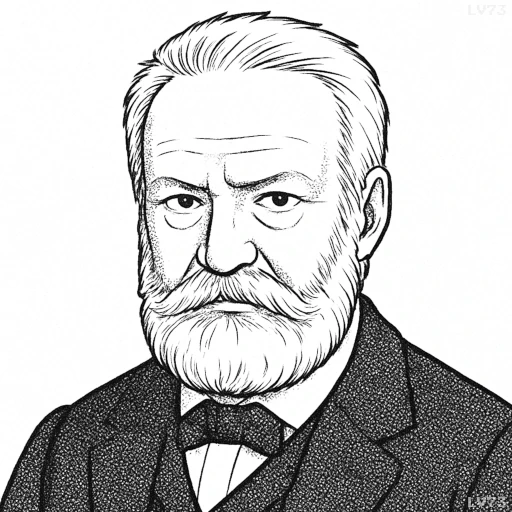“The beautiful has but one type, the ugly has a thousand.”

- February 26, 1802 – May 22, 1885
- Born in France
- Author, poet, playwright
table of contents
Quote
“The beautiful has but one type, the ugly has a thousand.”
Explanation
In this quote, Victor Hugo contrasts the simplicity and singularity of beauty with the complexity and diversity of ugliness. The idea that beauty has “but one type” suggests that there is a certain universality or ideal to what is considered beautiful—it is clear, defined, and easily recognizable. In contrast, ugliness is portrayed as more multifaceted, with “a thousand” variations, implying that imperfection or ugliness can take on many forms and can be perceived in a wide range of ways. This may reflect Hugo’s belief that beauty is often seen as an ideal, while ugliness can be a more complex and subjective judgment, influenced by cultural, personal, or situational factors.
Hugo’s words reflect his view on the nature of aesthetic judgment—beauty, while universally admired, is often more fixed and agreed upon, whereas ugliness lacks a single, uniform definition. Ugliness is more varied and subjective, shaped by differing standards and interpretations of what is considered appealing or repulsive.
In modern terms, this quote speaks to the subjectivity of beauty and the diversity of human experience. While beauty may be seen as a clear and consistent ideal, ugliness is more complex and can manifest in many different forms, both physically and metaphorically. It suggests that standards of beauty are often more rigid and universally agreed upon, while ugliness is more fluid and open to interpretation, often influenced by individual perception and cultural context.
Would you like to share your impressions or related stories about this quote in the comments section?



